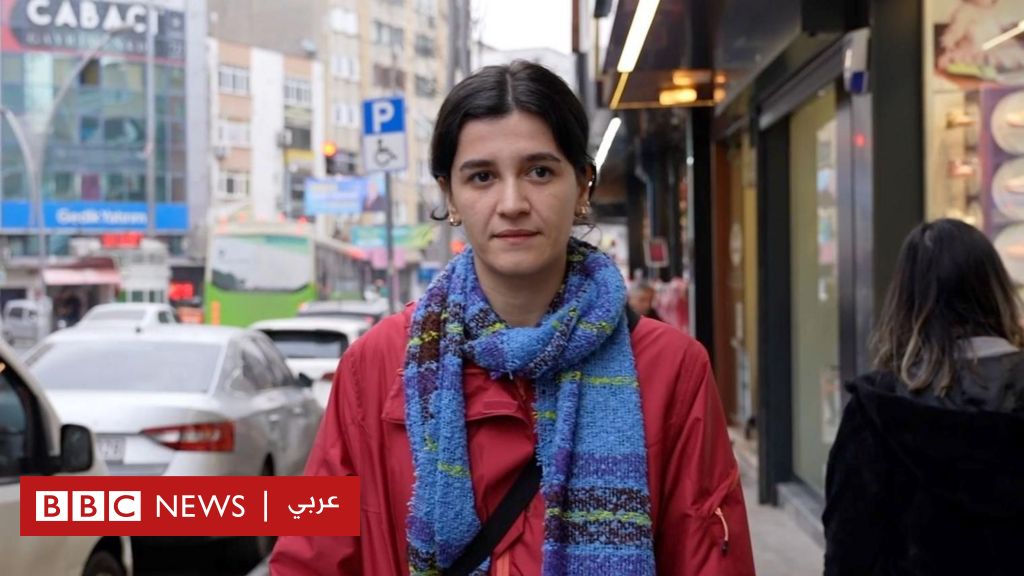- author, Ozge Ozdemir
- role, BBC News – Turkey
-
2 hours ago
“If I can’t use a credit card or pay in installments, I won’t be able to buy anything,” said Naz Chakar.
Naz, a 26-year-old factory worker, is one of millions of people in Turkey whose livelihoods depend heavily on credit cards.
Turkey’s annual inflation rate rose to 68.5% in March, and an increasing number are turning to credit cards to meet their basic needs such as food or shelter.
“The rise in inflation has eroded our wages and reduced our purchasing power,” Naz said: “Even when we buy the simplest things, we have to think twice.” High food prices are one of the most important responsibilities of people in Türkiye.
The minimum wage in Türkiye is 17 thousand liras, equivalent to 524 dollars per month. The poverty threshold is around 25,000 liras ($768), according to DISK, one of the country’s largest trade unions.
Turkey experiences the highest food price inflation rate among OECD countries, reaching 70% annually, which is 10 times higher than the OECD average of 6.7%.
Comment on the picture, Food prices in Turkey have tripled since June 2023 when the government abandoned its low interest rate policy.
Naz said that the increase in rental prices is also a cause of concern for her, as the amount she paid for rent doubled when she had to move to another residence.
“It’s harder for me to live than I thought,” she said.
Even the former governor of the central bank, Hafiza Erkan, complained that she couldn’t pay rent
Naz said, “We haven’t found a home. The rents are very high. We moved in with my parents. Is it possible that Istanbul will become more expensive than Manhattan?”
Unusual economic policy
Inflation in Türkiye reached 86% in October 2022, the highest level in 24 years.
The transport, food and housing sectors saw the biggest price increases.
Independent experts from the Inflation Research Group estimated that the annual rate at that time was 186.27%.
President Recep Tayyip Erdogan has long called for an unconventional economic policy to keep interest rates low to boost Turkey’s economic growth despite high inflation.
Most central banks raise interest rates to fight inflation, but the interest rate in Turkey at that time was 10.5%.
Therefore, it made sense for people to take out loans from banks or rely on credit cards, as interest rates were lower than inflation, which meant that their debts would gradually decrease gradually in the long run.
After Erdogan’s re-election last year, his new economic team led by Mehmet Simsek began to make policy changes.
In March, the central bank unexpectedly raised interest rates by 500 basis points to 50% to curb inflation.
Şimşek recently pointed out possible regulations on credit cards as well, saying that restrictions would be placed on their use.
“Wealth cannot be achieved through other people’s money, through loans or credit cards,” he said.
In 2023, credit card debt rose 2.5 times, exceeding 1 trillion liras ($34 billion), setting a new record.
In total, 2.5 trillion liras ($72 billion) of credit card money was spent in supermarkets and shopping malls to buy food and buy food.
Analysts and banking industry officials expect restrictions to be imposed soon, as the government has signaled that austerity measures are in place for some time.
a vicious cycle
“Due to the long period of low interest rates, practices such as withdrawing money from another card or taking out a personal loan to pay off credit card debt continued,” said economist Binhan Elif Yilmaz, noting that a vicious cycle in which people accumulate more debt to meet their needs.
Comment on the picture, The recent increase in interest rates has increased the debt burden for people who rely on their credit cards
She confirms that many have fallen into the trap of monetary policy, as food prices have tripled, and the recent increase in interest rates has increased the debt burden.
“Families and businesses found themselves in debt and unprepared during the high inflation,” she said, adding that people prefer to use credit cards because they offer the option of installments. without interest
She warned that the middle class was shrinking in Turkey, and urged officials to support low-income groups through more equitable income distribution rather than move to limit the use of credit cards.
“The pressure is increasing”
Naz Chakar said: “We have to use a credit card because we cannot provide basic needs. It is difficult to find someone without debt, whether in the factory or around me.”
Naz is now engaged and soon to be married, and says most of her current credit card debt is from buying new home appliances.
She explains that without a credit card, she won’t be able to pay for any of these things, because she can only pay in monthly installments.
Comment on the picture, Many throughout Türkiye prefer to shop only during end-of-season clearance or sales
Naz believes that even though interest rates are now higher, it still makes sense for people to use credit cards.
She says: “I know the prices of these products will go up, and everyone knows the prices will go up if they wait to buy certain things… and that’s why they are in debt.”
But because she won’t stop using her credit card, she’s stuck in a cycle of getting her paycheck, paying off her credit card balance, and then ‘fall into debt again.
“Everyone has debt to pay, and as interest rates rise, the pressure gets worse,” she said.
2024-04-26 12:59:27
#Inflation #Türkiye #stuck #paying #credit #card #debt


